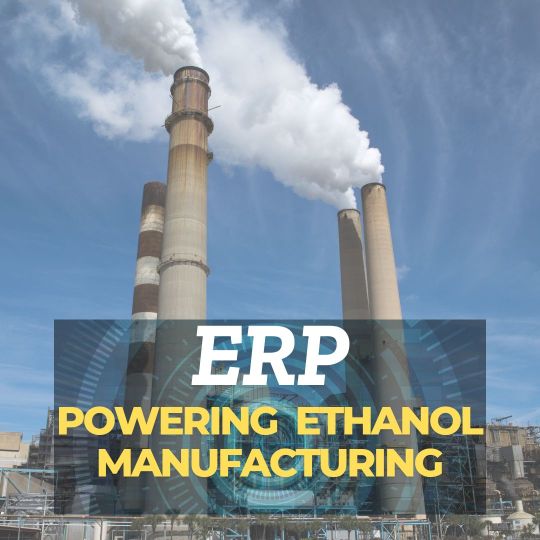#SolarIndustryTechnology
Explore tagged Tumblr posts
Text
ERP for Solar Panel Manufacturing: Revolutionizing Efficiency and Productivity
The renewable energy industry, especially solar power, has grown to such an extent over recent years. On this part, manufacturers of solar panels are encountering different challenges associated with production, inventory, supply chain optimization, and meeting regulatory satisfaction for demand of sustainable energy solutions. Therefore, those enterprises begin to look on the ERP system as means to help improve the manufacturing processes to an efficient competition.
Enterprise resources planning (ERP) is the term that defines holistic software solutions that consolidate and control within an organization itself all the primary business processes, from production, inventory, finance, procurement, and sales, to human resources. In solar panel manufacturing scenarios, an ERP system would automate processes effectively, provide real-time information, and promote collaboration across various departments.

Benefits of Implementing ERP in Solar Panel Manufacturing
Optimized production planning Solar panel manufacturing involves a lot of processes, from obtaining raw material, such as silicon, to photovoltaic cell assembly. An ERP system allows a manufacturer to develop an optimized production schedule, while also ensuring efficient resource allocation, maximum uptime, and completion of production objectives. Integrated production planning allows manufacturers to follow each batch's status, thereby optimizing machine utilization and avoiding bottlenecks.
Real-time inventory management Generally, raw materials, components, and finished products must be managed in solar panel manufacturing. An ERP system provides manufacturers with transparent views on the current status of inventories in real-time. Automation of stock updates assists greatly in preventing stockoverkills and stockouts, which are both cost-effective-loss items. Most importantly, it manages the supply chain much better with such features as supplier performance monitoring and optimization of reordering points.
Better Quality Assurance Quality is critical in the production of solar panels, as the tiniest defects can negatively affect the manifestation and life span of these products. With the capability of ERP solutions, manufacturers would be able to institute quality checks by tracking raw materials, documenting tests, and complying with industry standards. The integrated reporting in ERP allows manufacturers to remedy quality issues with speed and great accuracy, therefore helping to ensure even more product consistency.
Streamlined Supply Chain Management The solar panel manufacturing supply chain is, for the most part, global and includes thousands of suppliers, transportation providers, and governing bodies. ERP solutions enable a centralized system of managing the holistic supply chain organization from the start of order processing to shipment tracking and supplier performance. The transparency helps manufacturers manage disruptions before they affect lead times and delays.
Cost Control and Financial Management As the cost of production has seen a considerable increase, solar panel manufacturers are pressured to manage their costs without compromising on quality. But through ERP systems, cost control becomes more manageable, more efficient, and potentially much more profitable. The implication here is that they can minimize operating losses through increased expenditure control, budgetary control, and production costing.
Compliance and Reporting The renewable energy industry is mostly governed by various regulatory bodies, environmental standards, and safety regimes. ERP systems help manufacturers comply with these regulations through the automation of reporting, tracking of certifications, and maintenance of associated documentation. The inbuilt compliance capabilities in ERP systems allow manufacturers to generate reports to meet industry standards, thereby minimizing the risk of penalties and non-compliance-related concerns.
Data-Driven Decision Making Solar panel manufacturers operate in a highly competitive and dynamic environment, where making data-driven decisions is crucial. ERP systems provide comprehensive analytics tools that allow manufacturers to gain insights into key performance indicators (KPIs), such as production efficiency, sales performance, customer satisfaction, and supply chain reliability. These insights empower decision-makers to take proactive steps toward continuous improvement and long-term growth.
ERP Modules in Solar Panel Manufacturing
Generally, an effective ERP comprises the following modules for solar panel manufacturing:
Manufacturing Module This module manages the production processes: work order, production scheduling, inventory management, and quality control so that all production operations are optimized for better efficiency and productivity.
Inventory and Supply Chain Management This module monitors inventory levels, raw material orders, vendor management-all to help optimize inventory turnover and ensure that materials are available for production.
Sales and Order Management This module supports customer order input, demand forecasting, and shipment tracking so that customers will know when to expect their orders and receive quality products.
Financial Management This module brings together all financial accounting: budgeting, financial reporting, cost-tracking, and profit analysis. It lets the manufacturers keep financial control and make informed decisions regarding investments.
Customer Relationship Management CRM provides manufacturers with the tools to track customer interactions, manage sales leads, and enhance customer service. The role it plays is crucial in retaining a good customer relationship, enhancing sales performance, and managing after-sales service.
HR management It is critical in solar panel manufacturing employing a skilled workforce. With an ERP, HR will be able to maintain employee data, manage payroll, track shifts worked, and optimize workforce deployment for production.
Maintenance and Asset Management Solar panel manufacturing involves specialized machinery and equipment. With the help of an ERP, they can keep track of maintenance schedules and avoid machine downtime while ensuring that all their assets work at peak efficiency.
The Future of Solar Panel Manufacturing with ERP Systems
ERP systems are revolutionizing the solar panel manufacturing industry by allowing manufacturers to handle production, supply chains, product quality, and meeting regulatory requirements with the aid of these tools. It would provide solar panel manufacturers with the right tools to improve operational efficiency, cut costs, raise customer satisfaction, and push for overall business growth.
As the renewable energy market continues to grow, the adoption of ERP systems by solar panel manufacturers will become increasingly important to remain competitive, meeting demands for solar energy, and contributing to a more sustainable future.
#SolarPanelManufacturing#ERPforManufacturing#RenewableEnergyTech#ManufacturingAutomation#SolarEnergy#SmartManufacturing#SupplyChainOptimization#GreenEnergySolutions#ProductionEfficiency#SustainableManufacturing#SolarPowerInnovation#ERPforRenewableEnergy#EnergyManagement#SolarIndustryTechnology
0 notes